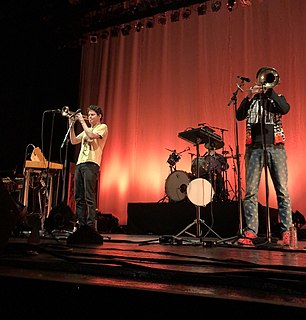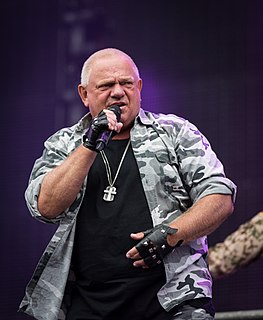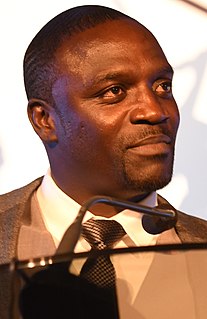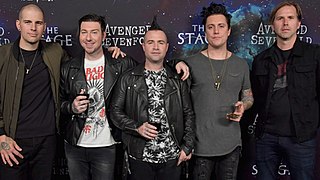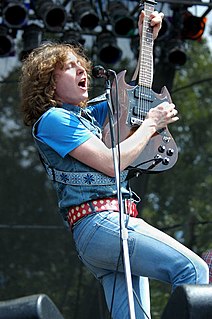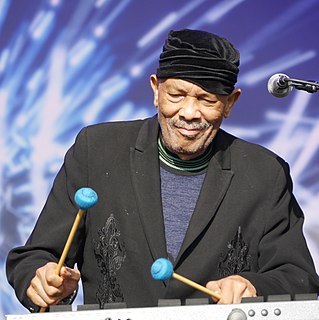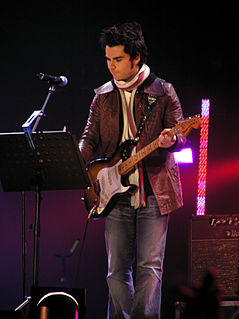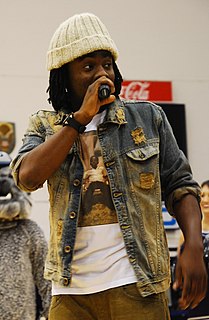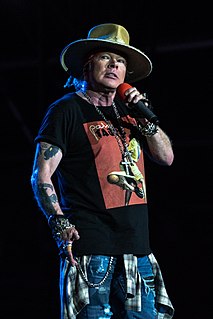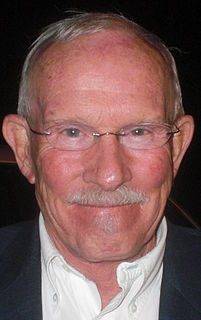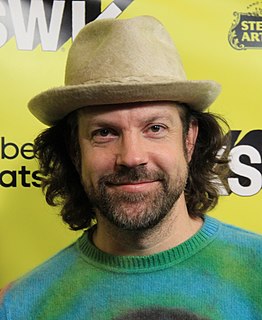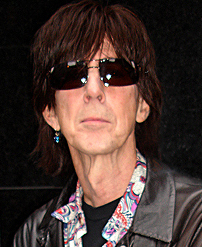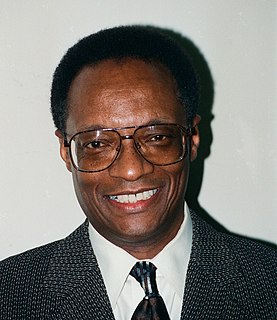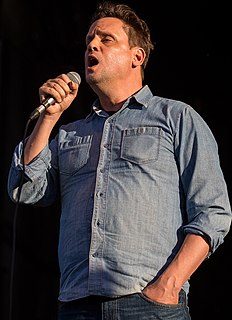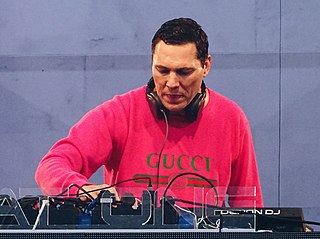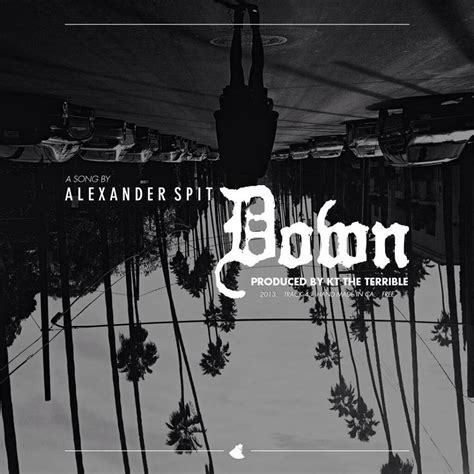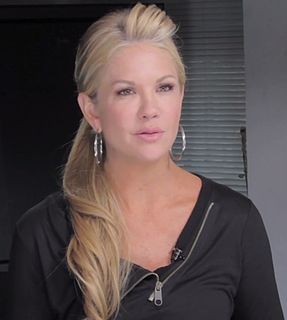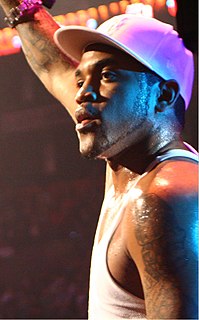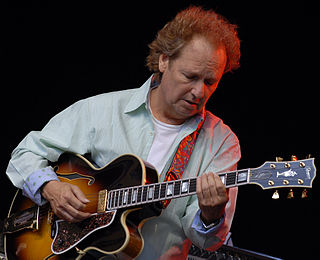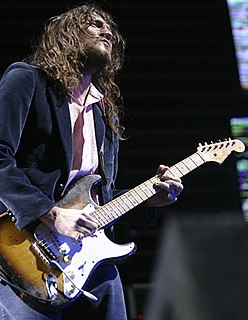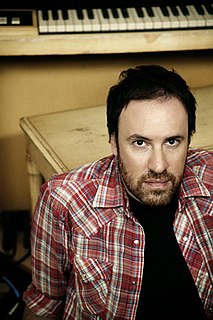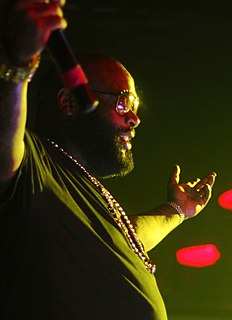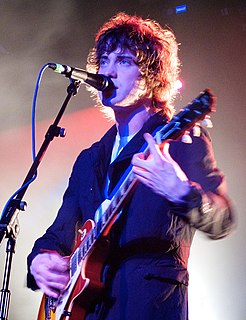Top 1200 Albums Quotes & Sayings - Page 20
Explore popular Albums quotes.
Last updated on September 19, 2024.
I had a couple albums out that sold well for who I was at the time and the type of music I played. People started recognizing my name and face and it helped sell bigger venues. I had a bigger spotlight and I had to live up to it but I thrived under that challenge. It expedited the creative process. If I was on stage in front of 300 people instead of 30, I had to work harder at my performances because I had a greater responsibility. It was very exciting, but creative too.
I don't feel guilty about the music I love. If you feel guilty about something you dig, then you should stop feeling guilty about it. One of my favorite albums to this day is the 10th anniversary ensemble cast of 'Les Miserables,' the ultimate cast recording, and it is still something I love listening to top to bottom.
It's funny because you do often read in recounts of very famous albums, people tend to focus on mistakes in really positive ways, and there's certain mistakes of my own that I always do find on every record that I needed to accept. I find it really interesting to talk about. I always write songs at the wrong tempos, and I have to learn to accept that a little bit.
I'm just going to keep going. For me, the most important thing is that I have fun. I've reached nearly everything already with Accept and U.D.O., so the most important thing is that I have fun touring and making albums. I'm still nervous when a new album comes out. I'm still nervous when we start touring. So as long as I have this feeling, I can't say when I will stop.
I grew up, like - since I had a lot of brothers, I grew up listening to Hot Boys, Goodie Mob, OutKast, basically all the southern albums, like Silkk the Shocker, Master P, Soulja Slim, and then it just elevated on when I started getting into music and I started listening to Nas and Jay Z and stuff like that and Lupe Fiasco and whatnot.
Any album that you pick up of mine, you know it's an Akon album. The guests are very limited and you get to really feel the experience. You get the Akon experience when you get the albums. I always want to make sure that stays the way it is. I don't want to flood the album to where you lose focus on why you bought it.
That one record changed everything for me. After Sgt. Pepper, it's the most influential record in the history of rock and roll. It affected Pink Floyd deeply, deeply, deeply. Philosophically, other albums may have been more important, like Lennon's first solo album. But sonically, the way the record's constructed, I think Music from Big Pink is fundamental to everything that happened after it.
I remember what it felt like when I was young, and I looked up to someone, and they would pay me just an ounce of attention. And some of the bands I listened to when I was young probably never even sold any albums, but it didn't matter to me. If I'd go up and say, 'Great show,' it would be amazing that they even would acknowledge me.
I've been on a real Credence Clearwater kick. I've been collecting their albums on CD -- right now I really like 'I Put a Spell on You.' I don't know who actually wrote it; it might be a traditional, or like, an old blues song, I haven't looked in the liner notes, but it's the first song on their first album. I love all the hits; I mean @#$%&, I like every one of them. I think my favorite song by John Fogerty is 'Have You Ever Seen the Rain?' They're my favorite American band of all time, totally.
Back then I was still listening to rhythm and blues, and my aunt took me to see a Pete Seeger concert. And it gelled. He made all the sense in the world to me. I got addicted to his albums, and then Belafonte and Odetta - they were the people who seemed to fuse things that were important to me into music. I think Pete the most because he did what he did to the point where he took those enormous risks and then paid for them.
Basically I made her [ Sara Pocock] listen to funk music for a good month, a nonstop stream of George Clinton. I was talking about the art from...if you look at the art from George Clinton albums there are two or three artists he worked with...I made her listen to my album too so all the images are from jokes I made. I wanted it to look like the thoughts that are coming out of my brain which is what comedy is anyway.
Nobody uses skits at all anymore, so it seems like I use a lot. That's how I grew up on tapes. Biggie tapes, Biggie albums would have skits. The Lox would have skits. Mase would have skits. All the dudes I grew up on in Nineties rap would have skits on their projects, just to make you feel like you were right there with them.
But I did mine through a production company. All the music I did, I gave to the production company. Then the production company would give the record company the album. I used to do all my albums like that. It was fantastic. But now, understand, I have never planned to do anything with these other tapes. The one that are released, like the Virgin Ubiquity you have there, I wasn't going to do anything with that music. One day, I was talking to this guy that owns BBE over in England, and I said I've got some tapes and stuff that you might be interested in, and he went berserk.
Even a fellow with a camera has his favourite subjects, as we can see looking through the Kodak-albums of our friends. One amateur prefers the family group, another bathing scenes, another cows upon an alp, or kittens held upside down in the arms of a black-faced child. The tendency to choose one subject rather than another indicates the photographer's temperament. Nevertheless, his passion is for photography rather than for selection, a kitten will serve when no cows are available.
I spend a lot of time working and with my family, so I don't have much time around the edges to do much else. I don't really listen to a great deal of music. I love music, but since I spend a lot of time in the studio, we probably watch a movie rather than listen to albums. I get to hear stuff, but not on the grand scale.
People are like, 'What do you mean you don't listen to 115 different types of music?'. You can't just listen to The Smiths anymore. But then there are plenty of people that do only listen to five bands and six albums and that's it. My playlists are massively varied. There's never a theme throughout, it's never like everything is based in funk or based in reggae or whatever. It's 210BPM gabber-style techno and 40BPM reggae in the same list and it's like, yeah, they work.
To maintain a consistency when people come to see the band takes a lot of work; it takes a lot of discipline. I go to the studio every day and sing and play. I never did that when I was, like, 30. I'd probably have a drink and walk on - and see what comes out. But now if there's ten albums' worth of material people are coming to hear some of, and they've paid money for a ticket, you become a different person when you go on and you want to give the best show you can. You want to be better at what you do.
I'm just so happy and proud of everybody and what everybody's doing. From Curren$y doing decent numbers with the independent, digital release; from Asher selling 1.1 million-plus on iTunes with the single and almost at 200,000 [albums sold] now; Cudi got almost 4,000 BDS's a week; Mickey Factz doing the Rock The Bells tour; Blu signed a deal shortly after; Ace Hood had two very successful singles, another album getting ready to drop. Everybody's doing their thing, man.
Each time I arrived in a new city, I'd get lost in the streets and photograph everything that looked interesting, taking nearly a thousand photographs every day. After each day of shooting, I'd select 30 or 40 of my favorite photographs and post them on Facebook. I named the albums after my first impression of each city.
If someone asked me if I could have anything in the world, what would l want? If l could own anything, like owning a piece of art, l think it would be Elton John's publishing, on his first seven albums. I don't want the money. Being able to own those songs Is like owning a painting of someone you admire.
Professor Irwin Corey had some of the best timing in the world, and that is something you can't steal. He talked nonsense, not punch-lines, per se. It was a great performance thing he did and his timing was impeccable. Pat Paulsen was a master of comedy too. The Smothers Brothers' strength was not in the content, but how it was said. We had a couple of our albums, including the Purple Onion album, translated in script form. It didn't work at all. It is no wonder that writers had a hard time writing for the Smothers Brothers, because they wrote impressions, but there was something else.
All you gotta do is think of the song in your head. And it doesn't matter whether you can play it or not, you can get somebody to play it. With songs I've written, there's a song called "The Statue", which I can't play. There are songs that I've written that I've actually just hummed on - there's a song on one of the albums they have there on the Internet called "My Love Was True" and it's almost operatic. I can't play it. But I can sing it.
I moved to San Francisco to work at Apple's Cupertino office in the summer of 2006, then stayed on remotely in a part-time job back in Austin. It was an internship with iTunes. I helped them launch new features as well as new marketing programs. I also helped program the iTunes Store every week, working on which artists and albums got featured.
To this day, we get letters at Alternative Tentacles from young teenagers who hide their Dead Kennedys albums behind their mirror or in the mattress of their bed. Wouldn't it be better if the parents just discussed this with the kids instead of creating this culture of sneaking and dishonesty within the family? The moral of the story being, you don't hide reality from your kids because then they grow up to be smarter, more aware adults.
One of my oldest friends from Kansas, his sister was married to Ben [Folds] and wrote lyrics on his first couple of albums. I got to meet him the first time I saw them in concert at The Bottleneck, a great bar in Lawrence, Kansas. Then, he was the musical guest my first or second week as a writer on SNL. I was like, "I don't know if you remember me?" And he was like, "Oh my god, yeah!" He's a big photography fan, as am I.
I would go to an aunt's house, and she would let me play music, and she had 'The Last Poets' album. At that time, albums didn't have explicit stickers on them, so some of the songs had profanity on them, and I was moved by that. I would listen to those songs, to the flow, and I'd balance it back and forth with the nursery stuff I had.
I've been in a band, so I understand the politics. Sometimes the bass player doesn't like what the guitar player is doing, and you have to sort of even that out. But I've also always loved the technology part of it. I've always loved the studio part. Making albums. Besides writing songs, which has been my primary thing, making records would be second. Obviously, touring would be third. Touring wasn't my favorite thing to do, but the first few tours were pretty fun. Seeing the world and everything.
They don't encourage quality today. When I was coming along, Columbia Records would sit with you and assume it would take two or three albums to get the act where it needed to be. Then the company would structure its promotion based on one, two or three years. They encouraged quality and innovation - that's why groups like the Beatles would use sitars, string orchestras and so forth.
I'm not as religious as some people about "the album." To be honest, that was a product of a format. You had vinyl, and you could fit five songs on each side, and that's 45 minutes. You had A-side songs and B-side songs; I always loved the first song on side B. And there's nothing wrong with that. Prog albums of the 70s adapted to that format very much. But not all musicians want to create 45 minutes of music that has to be listened to in chronological order.
I only made x amount of albums in 20 years and to still be living comfortably. A lot of people and friends look at me and be like yo Ra how do you do it? You don't go on tour every year and you don't make an album every year, you chill with your family and watch TV. Everyone else is out on tour getting that money. But I managed to do my thing right with the help of my accountant and I'm still comfortable.
As far as a theoretical point of view for my generation, I'm probably the most successful theoretician. I mean, double albums and concepts and dresses and major disasters and wonderful successes and yet you don't see the critical review of my work. Why? Because it's all focused on the persona. Billy Corgan. But I get to sort of jump in and be Billy Corgan. But then I get to sort of jump back out and be like, sensitive man in the corner.
Anything was better than going to work. All those early tours before we made any money were more like vacations. I don't think it was until 2001 that we pulled our heads out of the sand and were like, "What are we doing?" I don't think Chris realized he was in a band until 2001. He all of a sudden woke up one day and realized he was in a band. He thought he was just recording my solo project. Three albums later, we're in Baltimore trying to figure out what to do with ourselves.
Vinyl is so outdated nowadays. I can make a track in my hotel room today, and play it for the crowd tomorrow. That never happens with vinyl. I played a lot of acetates at the end of my vinyl period - I used to make tracks and get them pressed in four or five days - but the quality was always so bad and they would skip all the time. The vinyl days for me are over. I still buy vinyl, but only albums, and just to play. For DJing, vinyl is a nightmare.
I'd love to do a song with Tom Waits. Around when I was like 17 or 18, my buddy, D-Money, put me on the Tom Waits and I literally at that point got every one of his albums and kind of studied his music. I like that he provides an entire world for the listener. He's hopefully someone that I could vibe with down the line. I'm not sure how it would sound or even how it could work, but he's always been a huge influence.
My scrapbook albums are about capturing and saving the everyday joys of my whole family. In fact, in lots of ways, it's every bit as important to get the pets we love into an album or something that's going to keep them with us forever. There's not a pet owner out there who hasn't felt the loss of a treasured friend. An album lets us hold onto the good times. I've seen some incredible, touching, adorable books put together for pets - because clearly they deserve it. These are unconditional, lifelong friends.
Everybody goes to the funeral, but everybody laughs when it's funny. While entertainment is happening, that's just what it is, entertainment - until it crosses over into a whole 'nother situation. And now, me maturing, I look back at a lot of things, pushing forward, some things won't get my attention. Some things don't deserve my energy. I won't put forth so much on things, you got to focus on what's the matter at hand. That's to put out timeless music, and great albums.
The Photo Album is the weakest record. For the first time in our careers, we found ourselves with an economic incentive to be on the road and to be making albums. We had cut ourselves free from the security of day-job life. The goals became primarily financial, at least for a while. That was the roughest time we had ever had as a band, because that was the first moment we realized that this was for real. We were not goofing around anymore. We all threw everything we had into this in a way where we all found ourselves really far from home, and we were stuck with each other.
Well, Smoke n' Mirrors has very much a world music flavor and it doesn't park itself in one country. It borrows heavily from the Brazilian angle, which is dear to my heart, and I recorded several albums with that flavor. Probably even more so than the Brazilian flavor, there's an African, South African and West African influence and on a couple of other tracks there's some Latin flavor and there's some Indian tables on one track, all centered around my jazz guitar and acoustic guitars, and very much a Lee Ritenour sound.
Any album that you pick up of mine, you know it's an Akon album. The guests are very limited, and you get to really feel the experience. You get the Akon experience when you get the albums. I always want to make sure that stays the way it is. I don't want to flood the album to where you lose focus on why you bought it.
Enclosure, upon its completion, was the record which represented the achievement of all the musical goals I had been aiming at for the previous 5 years. It was recorded simultaneously with Black Knights' Medieval Chamber, and as different as the two albums appear to be, they represent one investigative creative thought process. What I learned from one fed directly into the other. Enclosure is presently my last word on the musical statement which began with PBX.
So you play your albums and you smoke your pot And you meet your girlfriend in the parking lot Oh, but still you're aching for the things you haven't got, What went wrong? And if you can't understand why your world is so dead And why you've got to keep in style and feed your head Well, you're twenty one and still you mother makes your bed And that's too long.
Taylor was named after James Taylor and claims that she knows all the James Taylor songs, and I'm a huge fan of James Taylor and know all his songs, too. My dad told me that if I ever met Taylor Swift, I had to tell her that I know every James Taylor song. We started naming albums, and we were both shouting them out.
For the most part, 99 percent of jazz is boring; you've heard it before. People aren't doing anything creative that's extremely modern. They tend to always be like "Let's do a tribute to Miles Davis!" All the new albums are tributes to history. It becomes too much at a certain point, it leaves us waving like "Hello? I'm alive, I'm here!" You know? So I really do feel like it needs some spice, it needs to be relevant to today's times, today's people, today's sound.
I try to structure albums in a pattern, like in a way where there's a motif that runs throughout or some kind of conceit that informs it in a general way. Maybe it's in a harmonic key. I like to go metastructural sometimes, like look at more than the three-minute passage and how that interacts with other pieces. And I've been increasingly interested in false starts and fraudulent beginnings, and things that don't reach their implied conclusions. I take an album and I kind of start moving things around like Jenga.
What I like about music is the songs you can remember the lines of in a single second. The Beatles, The Rolling Stones... You can remember every line to their songs. But today, how often do you remember any of the lines to songs? I mean, I know that one of the Lily Allen's last albums is called It's Not Me, It's You. But I don't know how the songs go.
You're creating music to pull people into a world, whether it be a visual medium where music is just one element, or a purely musical medium. Either way, you're trying to transport people and to create a connection. I've always felt that the best films and the best albums can be the best company. If people feel a little bit less alone because of something I had a hand in creating than I feel like I'm contributing to the world in a positive way.
Nothing has really changed. We had bootleg albums in the '60s and today we have Internet file sharing. They just found a better way to do it -- get music for free. What's great about today is an artist has an opportunity to go direct to their audience without dealing with a middleman. People can go directly to the web for CDs, DVDs and downloads. I think that's the best thing that's happened, that people's music is being flashed around the world.
I'm one of a dying breed who goes out and tours all the time. Labels don't spend the money to send people out to play before they become famous, but we did do that so the fans we have are word of mouth fans who have been travelling around with us for years, and they buy the albums, but they are also the ones who go out and get the bootlegs. I don't discourage bootlegging, I like playing live, I don't think it hurts my album sales at all if there are bootlegs out there. Who cares?
I was always real back and forth about the whole religion and God. That comes from me just dealing with that pain when I was younger, and just growing up, living that particular street lifestyle. It brought my relationship with God into question many times. I wanted to repair that and fix that, and that's what I went in and did. I did all of that. I wrote many albums and all that kind of stuff, but the most important part was fixing my mind, body, and soul; getting it together, really getting it together where I could have a future, and a successful future.
Everybody who know Rick Ross know that, for one, I love creating music, and one of the biggest impacts we have on the game was the fact that when we came into the game, artists was waiting two to three years to put out albums. I was one of the few that put out an album every year along with two or three mixtapes.
A brilliant 1989 album, Oh Mercy; some career retrospectives; and two albums of American folk songs, with just Bob Dylan and his guitar and harmonica. All that culminated in the Grammy-winning comeback album, Time Out of Mind (1997). Once again, just as Dylan seemed to be out of it, he was back at the top of his game.
Instagram is a media company. I think we're about visual media. I explain ourselves as a disruptive entertainment platform that enables communication through visual media. I don't think it's just photos. There's a reason we don't allow you to upload photos on the Web as albums. It's not about taking all these photos off your DSLR putting them into an album and sharing them with your family. It's not about that. It's about what are you up to right now out in the real world, how can you share that with everyone.
In general, the musicians we met that made the most sense just said to do what feels right and try not worry about what other people think. I know that sounds stupid and simple. I feel like Neil Young has done that and he's still making albums. He's one of the people I really look up to as someone who has kind of stuck to their guns their whole career. Just making music for music.
I think bands will actually make more money without record companies; a much bigger share of the money will go to the bands. You won't have record shops taking 40 percent of the money. You won't have record labels taking 40 percent of the money. So they don't have to sell as many albums as they used to in the past. So it's not necessarily a bad thing if record companies disappear.


